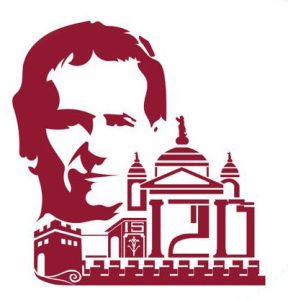牧民主題

我們是一家
2017 – 2018 年度
2017Strenna Reflection (March)
» more
“In the family all have the right to forgiveness and all have the ability to forgive in order to build and to rebuild the family”
“All Have The Right To Forgiveness”
One of the sentences that should be carved in block letters is the one written in the Strenna 2017: “All Have The Right To Forgiveness” because forgiveness is the way to happiness and true peace.
It is true that in our lives all of us suffered from some offence and we also certainly did offend someone; neither do we always give nor receive forgiveness. In such case, even many years can pass, but one still continues to live in an atmosphere of “rarefied” air, which is called resentment, hatred, anger. When the offence is inside the family and there is no forgiveness, the family becomes a hell.
There is no doubt that the problem of many families derives from “resentment and the difficulty to forgive”.
What can we do in the face of such a painful situation? This is what Pope Francis said to the families: “We are asked to promptly heal the wounds that we cause, to immediately reweave the bonds that break within the family. If we wait too long, everything becomes more difficult. There is a simple secret to healing wounds and to avoiding recriminations. It is this: do not let the day end without apologizing… There is no need for a long speech, as a caress is enough: one caress and everything is over and one can start afresh”.
The Rector Major, Fr. Ángel Fernández Artime, in the Strenna 2017 said that families “have to learn to be families by their mistakes. This requires humility and understanding, forgiveness and mercy”.
“Forgiveness is of vital importance both for our emotional health and our spiritual survival – C. Vargas wrote –. Without forgiveness the family becomes a theatre of conflicts and a stronghold of offences. Without forgiveness the family gets sick”. Because of this, the statement of the Rector Major is fundamental: “All have the right to forgiveness and all have the ability to forgive in order to build and to rebuild the family”.
But which are the steps one must take to forgive and thus to “rebuild the families”?: “preparing the families to be capable to forgive”; “proposing mutual forgiveness as a new start”; “knowing how to live together, understand, excuse and forgive”; but above all “we need to feel the embrace of the unconditional love of God … who loves without limits”, the Rector Majors underscored.
“In the family all have the right to forgiveness and all have the ability to forgive in order to build and to rebuild the family”.
Fr. Ángel Fernández Artime
Rector Major
» less
2017Strenna Reflection (April)
» more
Love is motivated by trust. There is no need to keep a check on the other person, to follow every step they take to prevent them escaping from us. Love leaves others free, has no wish to keep a check on everything, to possess, to control the other. Love leaves room for autonomy, for openness, for freedom since where there is no love there is no freedom. (Chap. IV)
Watch the video and select the proper language
» less
2017Strenna Reflection (May)
» more
Taking Care of One’s Neighbour
“The task of parents is promoting the human and spiritual growth and the ethical formation of their children, with positive methods, with an attentive dialogue” (The Rector Major).
Lily, a fifteen-months-old child, is sitting on the trolley at the supermarket, her eyes fixed on the iPad. Her mother is busy doing the shopping. Lily does not notice the shiny red apples nor the large display of Cheerios, her preferred cereals, on the shelf.
Every day, after school, Jason, a third elementary child, rushes in front of the TV, and there he will remain for five hours, until he goes to bed.
Melissa, a sixteen year-old girl, is attending the third year of her senior high school. Last month she sent 3500 SMSs (about 110 messages per day).
Regretfully, these situations are not unusual. Actually they have become normal in a world that orbits around monitors. In order to get the attention of a youngster, nowadays one must compete with a smartphone. «What can we do?» parents ask. «If we tell them we would like to do something together, we quarrel, and soon afterwards they get back to their gadgets».
Today, more than ever in history, it is necessary to have the sense of Don Bosco for education.

» less
2017Strenna Reflection (June)
» more
Eating together around the same table is a family ritual, just as a romantic weekend is for the couple.
Rituals contribute to reinforce the bonds that unite people and sometimes to create others that are more stable within the family. Family bonds risk being weakened by the frenetic pace of today’s world where nothing seems stable and certain. Thus families can safeguard their union only if all the members really have the intention of making the effort to keep the rituals and traditions of consolidation. These contribute to creating a sense of identity and bonds among the members who find in the family nucleus security and a guarantee of stable affection.
Like routine actions, rituals are repeated to the extent that they become foreseeable. Each one knows what to expect and what their responsibilities are.
However, there is an important difference: rituals in comparison to routines have a very strong symbolic meaning for the family.
Dressing in the morning is a routine. Greeting your partner or child with a kiss before leaving the house is a ritual. This is because, contrary to the routine of getting dressed, the kiss encloses in itself an important value. For example, it can mean I love you…I will miss you.
Sunday dinner, relaxing together at the end of the day, having an ice cream or a cup of coffee are all examples of rituals and every family develops its own over time.
When the children are small, rituals are celebrated for their growth: feeding them, bathing them, or putting them to bed. Every time one of these actions is done together, the ties are consolidated between parents and children.
A ritual is any space the parents and children can access, sure of finding the occasion for a meaningful exchange with the person loved, a special way of reinforcing emotional bonds every day.
In conclusion, rituals represent precious times of communion around rites, able to guarantee that sense of security and protection we all need in order to find serenity and balance. They make us feel part of our family and offer us the right space to communicate and keep alive bonds with each other.
The power of rituals is precisely this: creating occasions for encounter even in times of contrast and, naturally, reinforcing the bonds when harmony returns.

» less
2017Strenna Reflection (July)
» more
Amiability, Salesian Joy
In our world, in our families, with those around us we need amiability; more so with young people. We need to ask it as a gift, and to increase it as a virtue and through gestures that favor communication, relationships and make God’s love evident. It all begins with a kind word, or a subtle, kind, courteous, loving detail.
Paul in his Letter to Timothy considered it important and recommended all Christians to be amiable to everyone. Lovable is a person who, from their affectionate, gentle, caring and affectionate attitude, is worthy of being loved.
As a “pedagogue” of young people, Don Bosco knew by experience that it is not enough to love. “Pedagogical charity” requires more; “make oneself loved and lovable; that is, know how to translate love into behavior and acts of generosity, kindness, in a methodology of friendliness, familiarity through dialogue and the joy of living together ” (cit. ACS 310, pp 11-12).
It is, in the end, “to be loved”, the result of a spirituality and apostolic methodology that is especially original.
This was to be Don Bosco’s desire for the Salesians: “study how to make yourself loved” by young people, a fundamental aspect of his educational proposal.
Amiability produces peace and is contagious, has the power to “disarm hearts”; in other words, courtesy has the ability to free others from negative emotions because the other lowers their hands, calms down, before a kind gesture.
» less
視訊資源
[huge_it_videogallery id=”8″]


